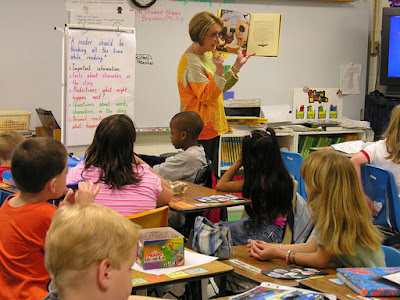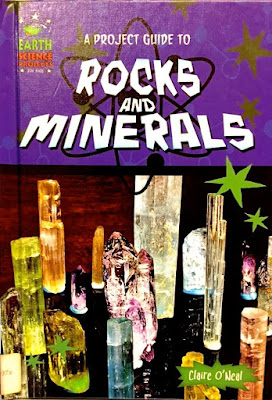This years fieldwork experience for the Science methods course I am currently enrolled in was an incredible learning opportunity. Over the course of four weeks, my group and I had the chance to teach two lessons in a 6th grade science classroom, and then observe three other groups lessons. It is a complete different ball game when you are teaching a whole class opposed to working one on one with a kid, or simply sitting in the back of a classroom observing the teacher. I have learned so much from teaching in front of a classroom and implementing the designed lessons plans into the classroom, collaborating with peers, writing different types of lessons, and observing peers. I am excited to share and reflect on my fieldwork experiences.

My group was group 1 and we had to go first. This was very nerve wracking for us and a little more of a challenge since we did not get to see the other groups teach before us. Every group had to give each other constructive criticism and it would have been a lot more effective to listen close to feedback from other groups and then apply that and improve our lessons and teaching. But, unfortunately we did not have that opportunity. Someone has to go first though! We still were able to learn from other groups and our own groups mistakes for our future teaching which was very beneficial for everyone.

We were instructed to create and teach a direct instruction lesson and an inquiry lesson. The direct instruction lesson is geared towards teaching through explicit instruction and personally I find these the most difficult. It is hard to make your students focus and retain all of the information from direct lessons, where the teacher is doing all of the talking and presenting all of the information. The students are not involved and are most likely instructed to take notes or fill out a vocabulary packet. Direct instruction lessons are super important, but also very challenging. The students need to learn the information the teacher is presenting on a specific topic, and learn all of the vocabulary to keep moving forward and participate in a cooperative or inquiry for the following lesson. Our group combined a direct instruction lesson with an inquiry lesson. I believe we did this wrong as other groups combined inquiry and cooperative, which makes more sense. Then again, we were the first group and would have done it the right way if we had seen previous lessons. For our inquiry and direct, we taught about minerals and how to identify minerals, and then the students had mineral kits and actually got to identify two minerals in groups. We each worked with a group and helped the students identify their minerals. I realized and learned that this was not direct instruction, and they were split into groups and the information was not straightforward presented to the students with the teacher in front of the classroom. We can only learn from our mistakes because as a teacher, it is very important to drill down the steps of teaching direct instruction in order to drill the information into the students. Creating inquiry lessons were also a challenge but teaching them to me is a little easier because the students are able to follow a procedure. This procedure being the scientific method. Students will always have a chart of can find anywhere the steps to the scientific method, and then apply those steps to their experiment. Inquiry methods can also be fun for students because they are creating an experiment by developing questions and investigating to find solutions. This is what science is all about and is why inquiry lessons are also very important. Implementing these lessons into an actual classroom was a huge learning experience for everyone, especially since it was most of our first time ever teaching in a classroom and creating our own lessons. It has taught all of us so much from just such a short period time. I have especially learned that just because you have a written lesson plan, does not mean you will follow it precisely and that it won't change. If students are not understanding the lesson and what you are doing, you must stop and go back, or completely change the lesson. What is the point of teaching a lesson if the students are not comprehending what you are teaching? It is very important to be prepared for this and not just keep teaching because you have it all written out and planned out in the lesson. It is also very important to realize when your students are not retaining the information and learn how to correctly check for understanding.

The second part to the fieldwork experience was to observe the lessons taught by our classmates. This was also a great learning experience because we learned how to give constructive criticism and feedback that will benefit them for future teaching. Some of the feedback was a little harsh given by other peers, but in the long run it will only help us in the future so we can learn from our teaching flaws. It really helped all of us and gave us tips on how to become a better teacher, as we are all still learning what works and what does not. By giving each other feedback from the observations we can all learn from this and make changes for our future teaching to make ours students more successful.
Overall, I have taken in so much from these 4 weeks of fieldwork. One of the main things I have learned is the importance of being prepared for anything, and I hate to say it, but sometimes the worst. For example, we found out when we had got to the classroom that the internet had been down and we did not have access to it. We were prepared for this, but not 100% as we uploaded the wrong powerpoint onto the drive. We got very flustered at first which affected our first half of the lesson, but we ended up pulling it together and rolled with the punches and just kept moving along. It is so important to not rely on technology as it does crash a lot and depending on the area you are working it, an impoverished school may not even have full access to the internet or any at all. This courses fieldwork has had a tremendous impact on me and I have learned so much that I will definitely take with me as I strive to become a better teacher day after day.
















